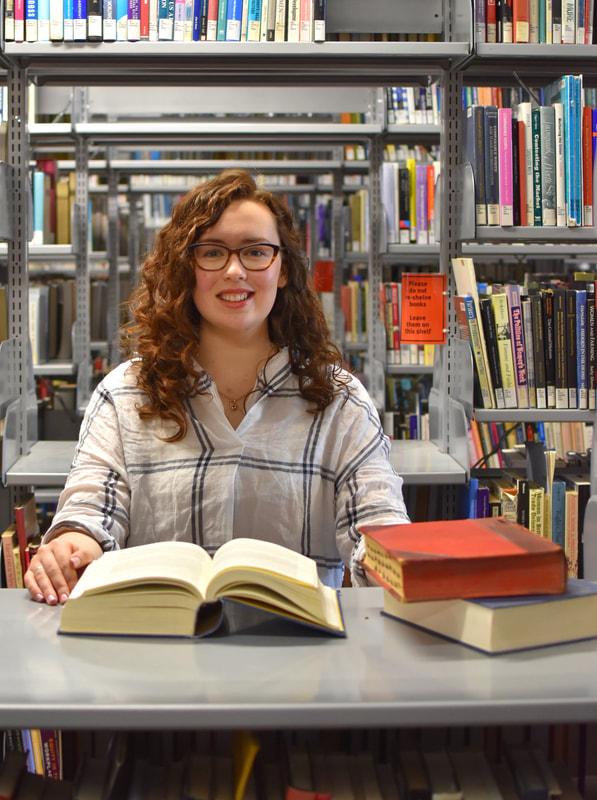Megan is a PhD student in the Department of Anatomy, University of Otago researching the historical experiences of infant death.
Tell us about your research
My PhD is focused on infant death in Dunedin, New Zealand between 1850 and 1940. I’m using historical resources as well as the physical memorialisation of these babies (gravestones, markers etc) to identify how parents chose to remember their lost child. There were massive changes in infant mortality rates, medical care and fertility during this time and I’m trying to discern if this had any effect on how infants were grieved for if they died.
What is it that drew you to this research?
I have always been interested in history and biology, and somehow I managed to find a field that lets me research both! When I completed my Honours project, which was research into the provenance of a set of infant remains, I really felt like I had more work to do so I applied for a PhD.
What are your career goals and aspirations?
Ultimately I want a career that lets me continue to learn, but what that career might be I’m not sure yet.
What are you most proud about so far in terms of your achievements?
Shining a light on some untold local stories. Women and children have typically been neglected in historical accounts, and my research is doing something to rectify this. While my focus is specifically on the infants, it really is a story of ordinary families going through something rather extraordinary (by modern standards). Some of the fathers that lost infants were prominent Otago men and while their life stories are well known, this is one aspect that is rarely talked about.
What is one thing that you have found surprising while researching your focus?
The idea that infants of the past were objects with no ability to affect the world around them! When reading literature on this subject, there seems to be an idea that in times of high fertility and high infant mortality, infants were somewhat replaceable and parents would not openly grieve for their lost child. In historic Dunedin, this is absolutely not the case! It’s clear that women and their families felt a wide range of emotions after the loss of a child, and the internment of these children reflects that.
What is one thing about your research you want people to take away with them?
Not to take for granted the advances we’ve made in hygiene and medicine! We enjoy the low maternal and infant mortality rate today because of advances in obstetric and paediatric medicine, antisepsis, vaccinations, and infant nutrition.
Tell us about your research
My PhD is focused on infant death in Dunedin, New Zealand between 1850 and 1940. I’m using historical resources as well as the physical memorialisation of these babies (gravestones, markers etc) to identify how parents chose to remember their lost child. There were massive changes in infant mortality rates, medical care and fertility during this time and I’m trying to discern if this had any effect on how infants were grieved for if they died.
What is it that drew you to this research?
I have always been interested in history and biology, and somehow I managed to find a field that lets me research both! When I completed my Honours project, which was research into the provenance of a set of infant remains, I really felt like I had more work to do so I applied for a PhD.
What are your career goals and aspirations?
Ultimately I want a career that lets me continue to learn, but what that career might be I’m not sure yet.
What are you most proud about so far in terms of your achievements?
Shining a light on some untold local stories. Women and children have typically been neglected in historical accounts, and my research is doing something to rectify this. While my focus is specifically on the infants, it really is a story of ordinary families going through something rather extraordinary (by modern standards). Some of the fathers that lost infants were prominent Otago men and while their life stories are well known, this is one aspect that is rarely talked about.
What is one thing that you have found surprising while researching your focus?
The idea that infants of the past were objects with no ability to affect the world around them! When reading literature on this subject, there seems to be an idea that in times of high fertility and high infant mortality, infants were somewhat replaceable and parents would not openly grieve for their lost child. In historic Dunedin, this is absolutely not the case! It’s clear that women and their families felt a wide range of emotions after the loss of a child, and the internment of these children reflects that.
What is one thing about your research you want people to take away with them?
Not to take for granted the advances we’ve made in hygiene and medicine! We enjoy the low maternal and infant mortality rate today because of advances in obstetric and paediatric medicine, antisepsis, vaccinations, and infant nutrition.
